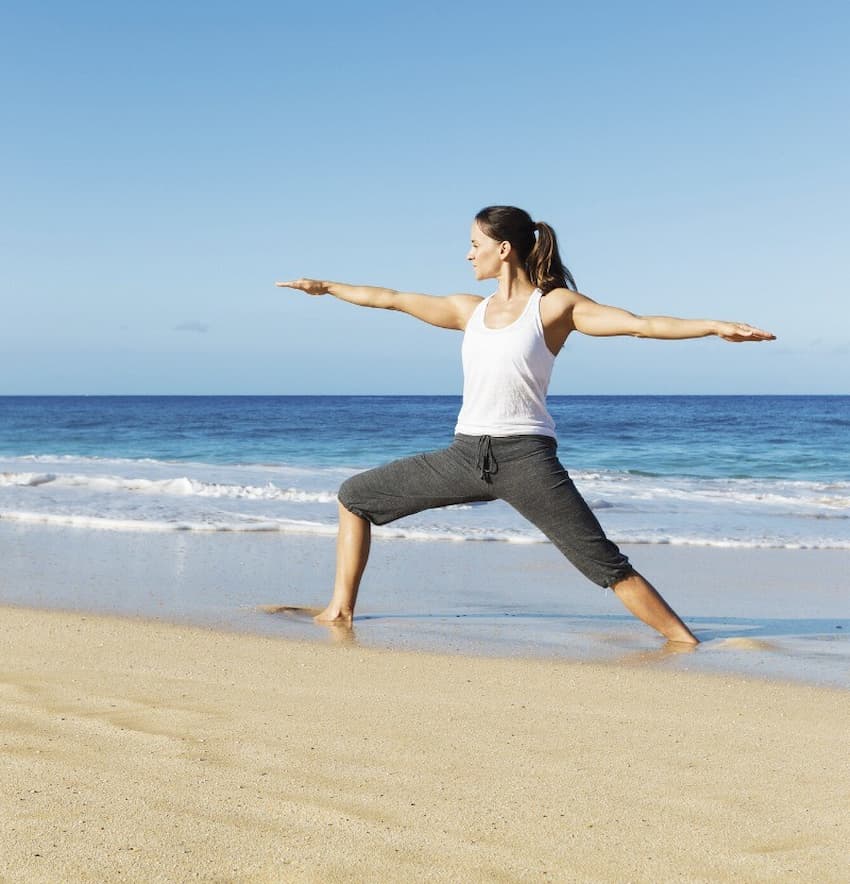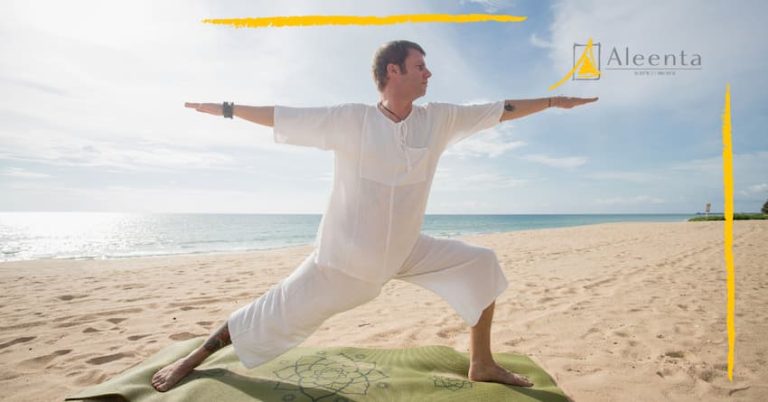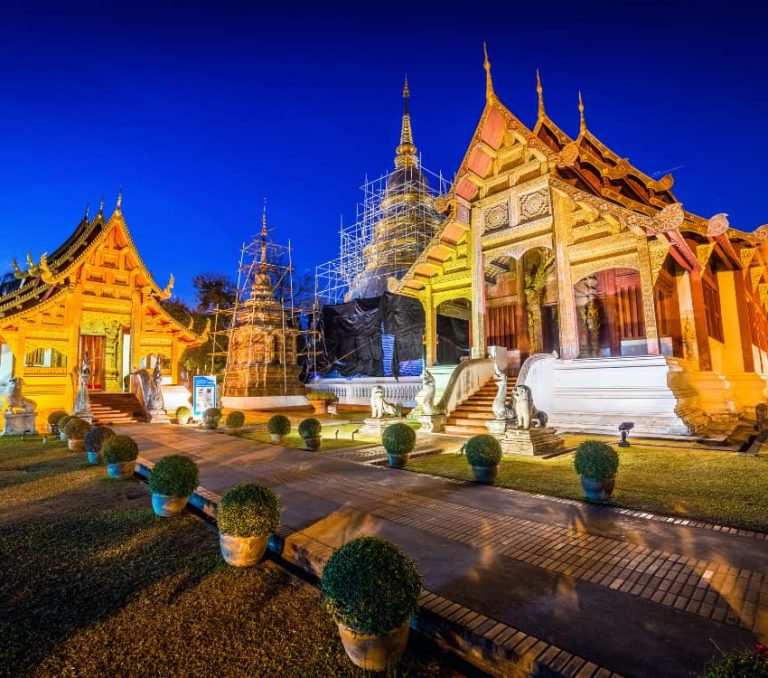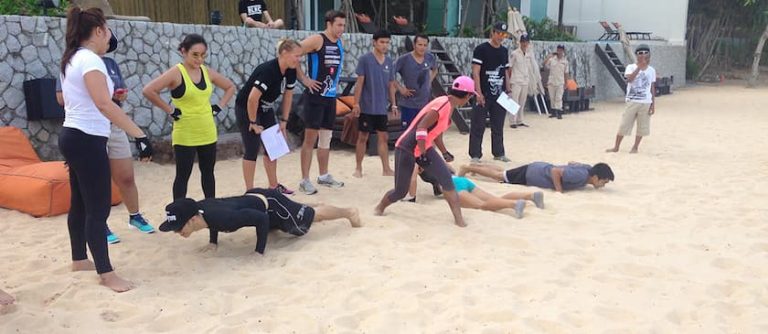Hatha Yoga, a practice deeply rooted in ancient traditions, is one of the most popular forms of yoga globally. Characterised by its focus on physical postures (asanas) and controlled breathing (pranayama), Hatha Yoga is a foundational practice for many yoga enthusiasts. Its principles emphasise physical strength, flexibility, and mental concentration, making it a comprehensive approach to wellness.
Parallel to this, meditation, an age-old practice, has gained significant traction in the modern wellness landscape. Meditation focuses on training the mind to achieve clarity, emotional positivity, and calmness through techniques like mindfulness or focused attention. Its rise in popularity can be attributed to its proven benefits in stress reduction, mental clarity, and overall well-being.
The combination of Hatha Yoga and meditation offers a synergistic effect that enhances the benefits of both practices. While Hatha Yoga prepares the body and mind, making it an ideal precursor to meditation, meditation deepens the yoga practice by improving mental focus and inner calm. Together, they form a holistic approach that addresses physical, mental, and emotional health, aligning the body and mind in harmonious balance.
Hatha Yoga
Hatha Yoga emerges from the Sanskrit words ‘Ha’ meaning sun, and ‘Tha’ meaning moon, representing the balance of opposites. This ancient practice dates back to the 11th century and has evolved over centuries, forming the basis for many modern yoga styles. Traditionally, Hatha Yoga aims to prepare the body and mind for meditation and higher awareness.
Elements of Hatha Yoga:
Physical Postures (Asanas):
Asanas are the physical poses in Hatha Yoga designed to improve strength, flexibility, and balance. Each posture has specific physical benefits, ranging from improved muscle tone and posture to enhanced digestive function. Regular practice of asanas can increase energy levels and a general sense of physical well-being.
Breathwork (Pranayama):
Pranayama, or breath control, is integral to Hatha Yoga. It involves various breathing techniques that regulate the flow of breath and, by extension, the energy flow within the body. Practices like deep abdominal breathing, alternate nostril breathing, and rhythmic breathing help calm the mind, reduce stress, and improve lung capacity.
Asanas in Hatha Yoga:
- Asanas are known for reducing physical tension and promoting relaxation in the body.
- Regular practice aids in developing body awareness, which is crucial for mindfulness and mental focus.
- Physically, asanas enhance mobility, strengthen muscles, and improve body alignment, contributing to overall health and injury prevention.
Pranayama in Meditation Preparation:
- Pranayama bridges the physical practices of yoga and the mental focus required for meditation.
- By controlling and deepening the breath, pranayama helps quiet the mind, making it more conducive to meditation.
- The practice of pranayama increases lung capacity and improves respiratory efficiency, which is beneficial for sustained periods of meditation.
Meditation in Yoga
Meditation, a practice as ancient as yoga itself, is a component of the holistic approach to wellness. It involves techniques to focus the mind, inducing a state of deep peace and heightened awareness. While there are numerous forms and methods of meditation, the core objective remains consistent: to achieve a clear, calm, and contented state of mind.
Forms and Techniques of Meditation:
Mindfulness Meditation:
This practice involves paying attention to thoughts, sounds, and sensations of breathing or parts of the body, bringing awareness to the present moment without judgment.
Concentration Meditation:
This form requires focusing on a single point, a specific object, a mantra, or even the breath to train the mind in focused attention.
Loving-kindness Meditation (Metta):
This method cultivates an attitude of love and kindness towards everything, even sources of stress and difficulty.
Mindfulness and Focused Attention:
- Mindfulness in meditation encourages active, open attention to the present moment. It allows practitioners to observe their thoughts and feelings from a distance without labelling them as good or bad.
- Focused attention is important in meditation as it helps steady the mind, reducing scattered thoughts and enhancing concentration.
Complementing Yoga with Meditation:
- Meditation enhances the benefits of yoga by deepening the sense of mental clarity and inner peace. It allows for a deeper understanding and connection with the self, often cultivated through physical yoga practices.
- The physical practice of yoga prepares the body for extended periods of sitting in meditation, making the experience more comfortable and sustainable.
- Yoga and meditation together create a symbiotic relationship where each practice enriches the other, leading to a more profound experience of both. The physical benefits of yoga can enhance the meditative experience, while the mental clarity achieved through meditation can improve focus and awareness during yoga practice.
Integrating Meditation into Hatha Yoga
Incorporating meditation into a Hatha Yoga practice can significantly enhance the overall experience, creating a more rounded and holistic approach to wellness. The integration allows for a seamless transition from physical asanas to mental clarity.
1. Begin with Gentle Asanas:
Start your Hatha Yoga session with gentle postures to loosen the body and calm the mind. Balasana (Child’s Pose) or Sukhasana (Easy Pose) are ideal for beginning the practice.
Focus on your breath and bodily sensations as you move through each pose, preparing both body and mind for meditation.
2. Gradual Transition to Meditation:
After completing the yoga asanas, gradually transition into a comfortable seated position for meditation. You can choose a traditional cross-legged posture or any position where you feel relaxed yet alert.
Spend a few moments in stillness, allowing your breath to normalise and your body to settle.
3. Initiate Meditation with Focused Breathing:
Begin your meditation practice with a few minutes of focused breathing. Pay attention to the natural rhythm of your breath, observing each inhalation and exhalation.
This focused attention on the breath serves as a bridge between the physical practice of yoga and the stillness of meditation.
4. Practice Mindfulness:
Engage in a specific meditation technique, such as mindfulness or concentration. For mindfulness, maintain an open awareness of your thoughts and sensations; for concentration, focus on a particular object, mantra, or the breath itself.
Start with shorter durations and gradually increase the time as you become more comfortable with the practice.
5. Maintain Focus and Deepen the Meditative State:
If your mind wanders during meditation, gently bring your focus back to your chosen point of concentration or your breath.
Use visualisation techniques or silent mantras to deepen your meditative state, enhancing mental clarity and inner peace.
6. Finish with Gratitude and Reflection:
As you end your meditation, take a moment to express gratitude for your practice and reflect on the sense of calm and clarity you’ve cultivated.
Slowly transition back to your day, carrying the sense of peace and centeredness with you.
Benefits of Combining Hatha Yoga with Meditation
Integrating Hatha Yoga with meditation offers a range of benefits spanning physical, mental, and spiritual aspects of health. This combination enhances the individual effects of each practice and creates a more holistic approach to well-being.
Physical Benefits:
Improved Flexibility and Strength:
Hatha Yoga postures work on stretching and strengthening various muscle groups. Regular practice increases flexibility, reduces muscle tension, and enhances physical strength.
Enhanced Relaxation:
The relaxation techniques in Hatha Yoga and meditation’s calming effects promote deep body relaxation. This can lead to better sleep quality and improved energy levels.
Boosted Immune Function:
The combination of physical exercise and stress reduction through these practices can lead to improved immune system functioning.
Mental Benefits:
Reduced Stress and Anxiety:
Meditation’s focus on mindfulness and breathing can significantly lower stress levels, helping to alleviate anxiety and promote a sense of calm.
Improved Concentration and Focus:
The discipline required in Hatha Yoga and meditation enhances mental clarity and concentration. This can lead to better cognitive function and focus in daily activities.
Emotional Well-being:
Regular practice can lead to an improved mood, greater resilience to emotional stress, and an overall sense of well-being.
Spiritual Benefits:
Heightened Self-Awareness:
Hatha Yoga and meditation encourage introspection and self-awareness, leading to a deeper understanding of oneself and one’s place in the world.
Deeper Sense of Connection:
The practices often lead to a sense of connectedness – with oneself, others, and the larger universe. This can foster a sense of purpose and belonging.
Inner Peace and Harmony:
The spiritual journey through these practices can lead to lasting inner peace and a sense of harmony within the complexities of life.
Wellness Experience in Phang Nga
At Aleenta Phuket Resort & Spa in Phang Nga, guests are invited to indulge in a comprehensive wellness experience designed to rejuvenate the mind, body, and spirit. The resort offers a range of therapeutic practices, each catering to different aspects of well-being.
1. Full Relax Therapy:
This unique therapy is a blend of Reiki and Tibetan Singing Bowl Therapy. It’s crafted to create deep relaxation and alleviate stress and anxiety. The practice involves wellness practitioners using gentle touch to channel energy into the body. This process aims to improve energy flow and balance, fostering a conducive environment for healing and relaxation.
2. Deep Relaxation Nidra Yoga:
Yoga Nidra at Aleenta is a guided meditation that leads participants into a state of harmonious and restful being. This practice is about more than just relaxation; it is a journey towards healing, restoration, and awakening to a more profound, more intuitive sense of self.
The effectiveness of Yoga Nidra is supported by ongoing research, highlighting its benefits in promoting mental clarity and emotional stability.
3. Lung Healing:
The Lung Healing program focuses on breathing techniques to restore and enhance lung function. Emphasis is placed on diaphragmatic breathing, encouraging breath through the nose to strengthen the diaphragm and promote a relaxed state in the nervous system.
4. Hatha Yoga:
Hatha Yoga at the resort involves a series of slow, deliberate movements into various poses, each designed to challenge and improve strength and flexibility. Alongside the physical practice, there’s a strong focus on relaxation and mindfulness, ensuring a balanced approach to physical exercise and mental well-being.
Each of these practices at Aleenta Phuket Resort & Spa in Phang Nga aims to provide guests with a serene and revitalising experience, helping them to disconnect from daily stresses and reconnect with their inner selves.
Related Articles
- Yoga Retreats and Wellness on Natai Beach
- Hatha Yoga: An Introduction
- What Makes a Great Yoga Retreat
- Mind Body Connection and Wellness on Natai Beach
- Ashram Yoga: A Journey of Self-Discovery
Aleenta Phuket
Phang Nga Resort & Spa
Phang Nga Resort & Spa
33 Moo 5, Khok Kloi,
Takua Thung, Phang Nga
82140 Thailand
T: +66 (0) 76 580 333












